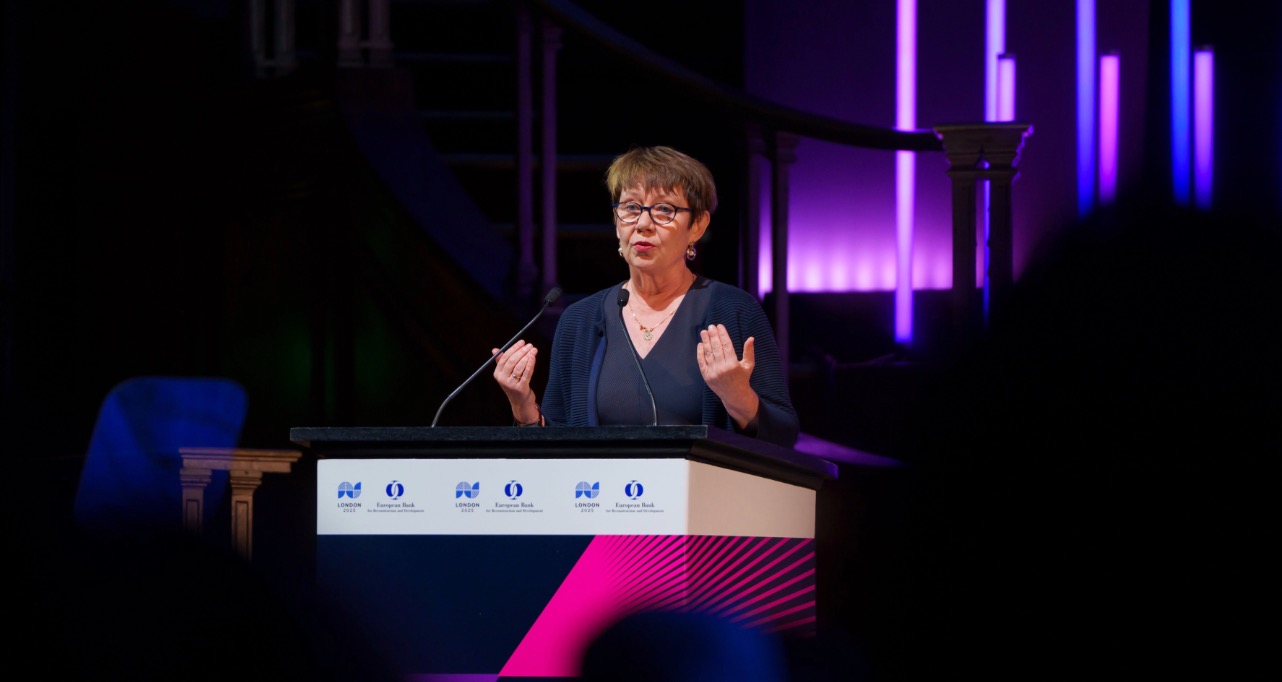Who we are
Overview: about the EBRDWho we are
Overview: about the EBRD
Our story
Learn about the EBRD's journey to investing more than €220 billion in over 7,800 projects.
- Our background and history
- Our organisation
- Our values
- Strategies, governance and compliance
- Project accountability
What we do
Overview: how the EBRD operatesWhat we do
Overview: how the EBRD operates
How we deliver systemic impact
Across three continents, the EBRD supports the transition to successful market economies.
- Where we work
- Products and services
- Sectors we work in
- Our projects
- Focus areas and initiatives
- Economic research
Work with us
Overview: how you can work with the EBRDWork with us
Overview: how you can work with the EBRD
What we offer for businesses
We draw on three decades of regional knowledge and financial expertise to tailor our products and approaches to each client's needs.
- Businesses
- Investors
- Donors
- Researchers
- Civil Society
- Alumni
- Nominee Directors
- Trade finance
- Careers
Read full speech
- EBRD’s 2025 Annual Meeting and Business Forum opens in London
- UK Chancellor of the Exchequer Rachel Reeves also addresses Governors
- President welcomes new shareholders from Africa and Iraq
The European Bank for Reconstruction and Development (EBRD) and its focus on the private sector can help the countries where it works build resilience and enhance competitiveness amid global uncertainty, its President said today.
The world faces new economic shocks in the form of trade friction, geopolitical tensions and volatile markets, Odile Renaud-Basso told the Bank’s 2025 Annual Meeting and Business Forum in London.
The President evoked the Bank’s core values – as identified when the EBRD was established back in the same city in 1991 – saying that they were the source of its many strengths.
“Market economies, underpinned by democracy, offer the surest path to growth and prosperity,” she explained.
“That’s why we focus on promoting the private sector, mobilising investment and promoting policy reform.”
“Experience shows that we perform at our best in times of crisis,” she added. “The world needs institutions, such as ours, which bring countries and competing perspectives together.”
Support for Ukraine, where the Bank is the largest institutional investor and has deployed more than €7 billion since the start of Russia’s full-scale war against the country, would continue to be the EBRD’s central strategic objective, Ms Renaud-Basso said.
In her speech to the Board of Governors, Rachel Reeves, the UK Chancellor of the Exchequer, praised the EBRD for standing “in defence of freedom and democracy […] as the largest single institutional investor in Ukraine”.
“A lasting prosperity in Europe demands a just and lasting peace in Ukraine,” the Chancellor said. “And that means committing to a strong and enduring reconstruction and recovery effort.”
This year’s Annual Meeting will see the EBRD’s Governors take several landmark decisions, including approval of the Bank’s new Strategic and Capital Framework, which will set out its strategic direction for the next five years.
They will also be asked to approve EBRD country of operation status for Benin, Côte d’Ivoire and Nigeria, marking the beginning of the Bank’s move into sub-Saharan Africa.
Ms Renaud-Basso welcomed the EBRD’s new shareholders from Africa and Iraq, saying that the Bank was “on the cusp of momentous change”.
Besides Ukraine, she identified the Bank’s future priorities as supporting the green transition, strengthening economic governance and enhancing human capital, as well as increasing its impact through digital technology and mobilising more private capital.
The EBRD was set up at the end of the Cold War in Europe to build open, market economies and foster private entrepreneurial initiative.
The Bank delivered a record €16.6 billion of investment to its economies of operation in 2024, with more being invested in the private sector, the green economy and human capital than ever before.

